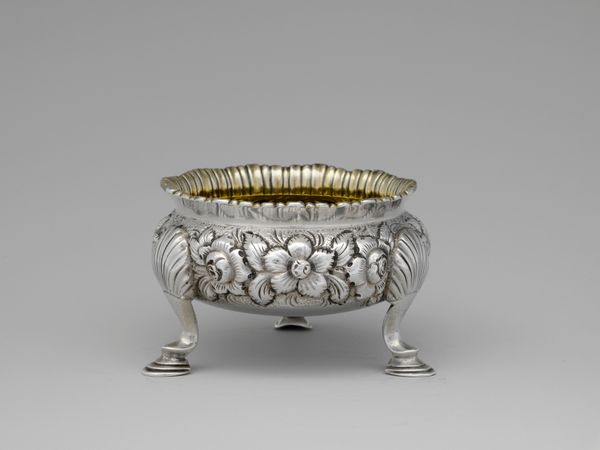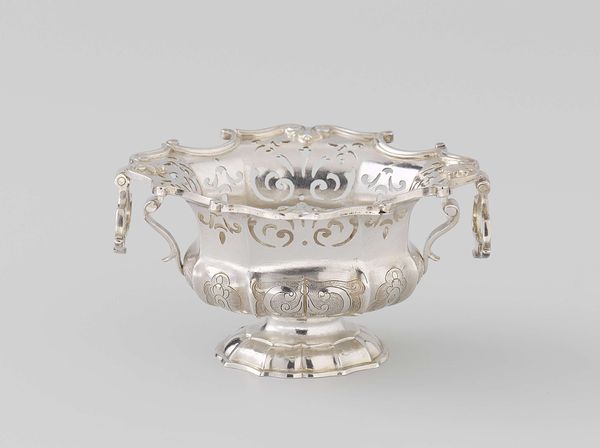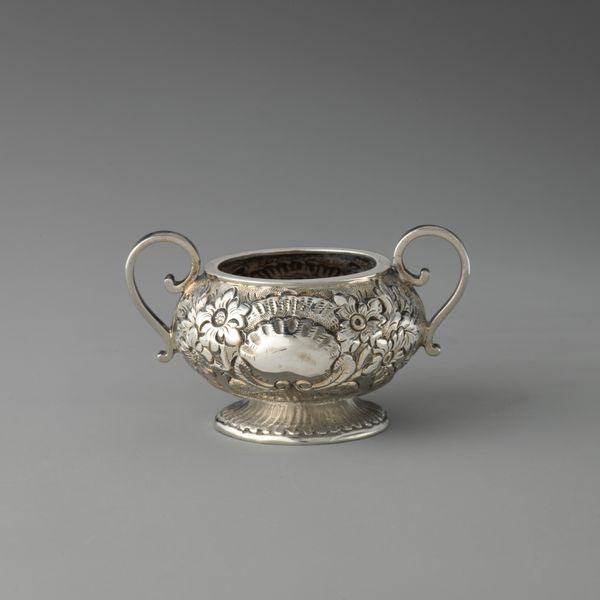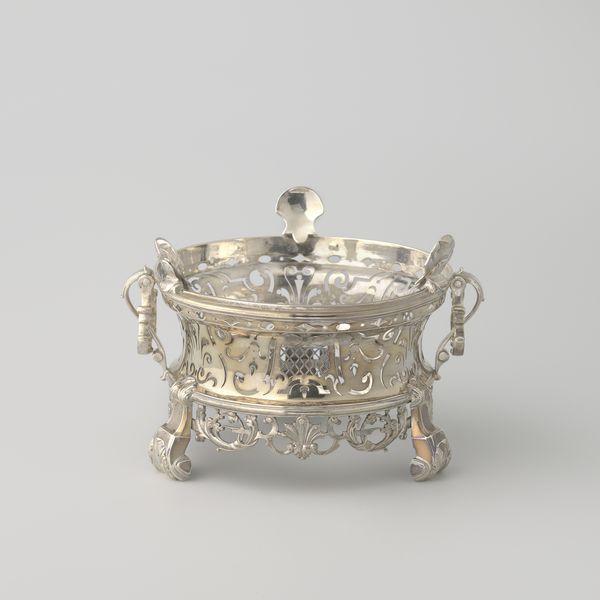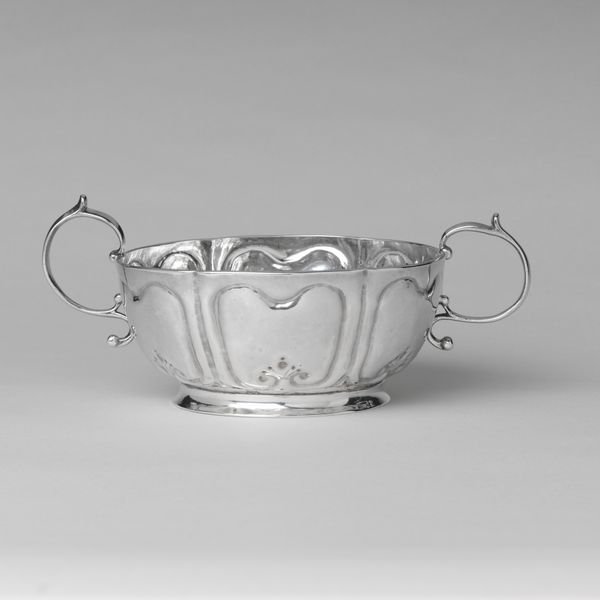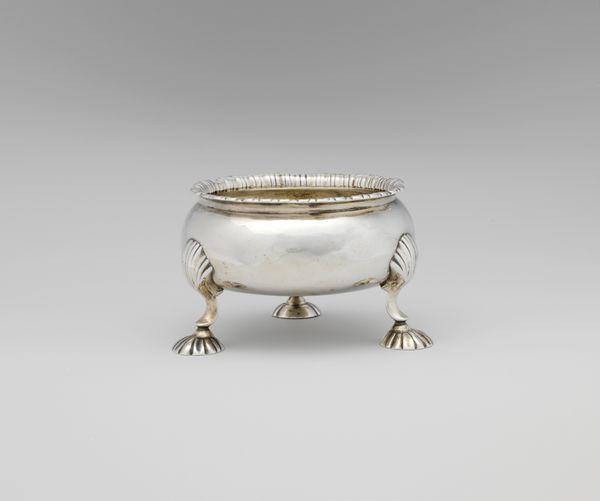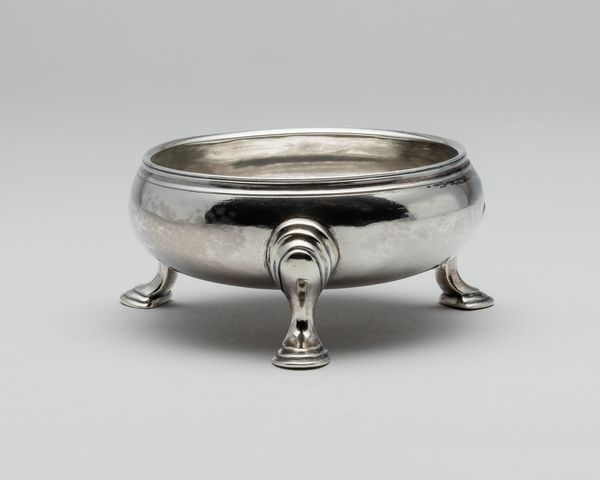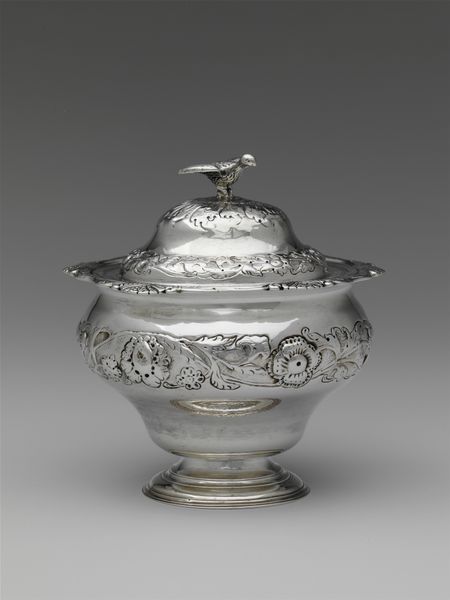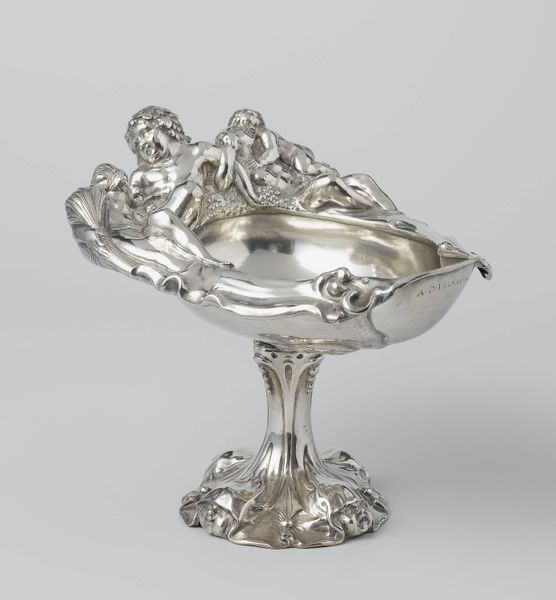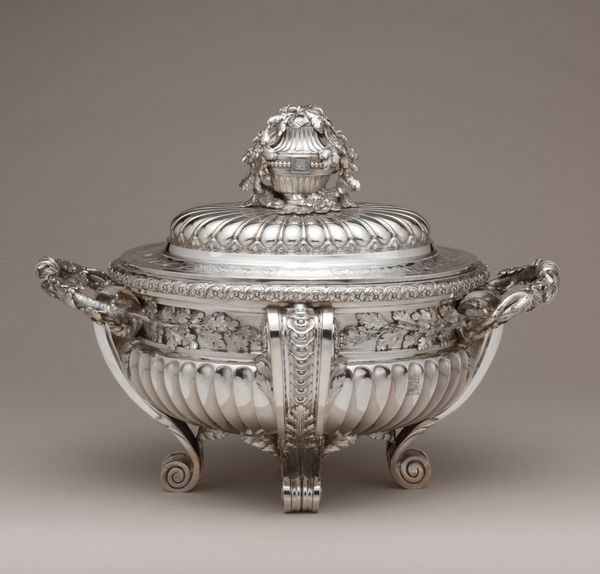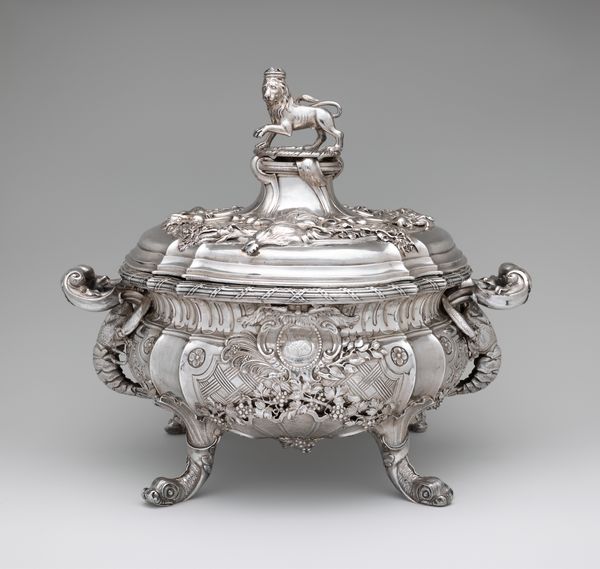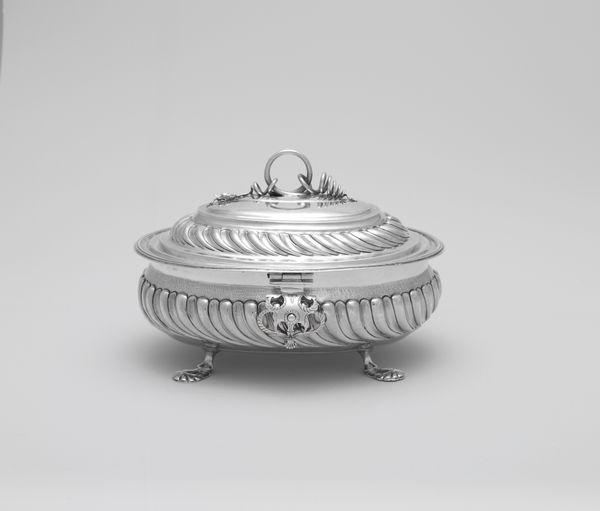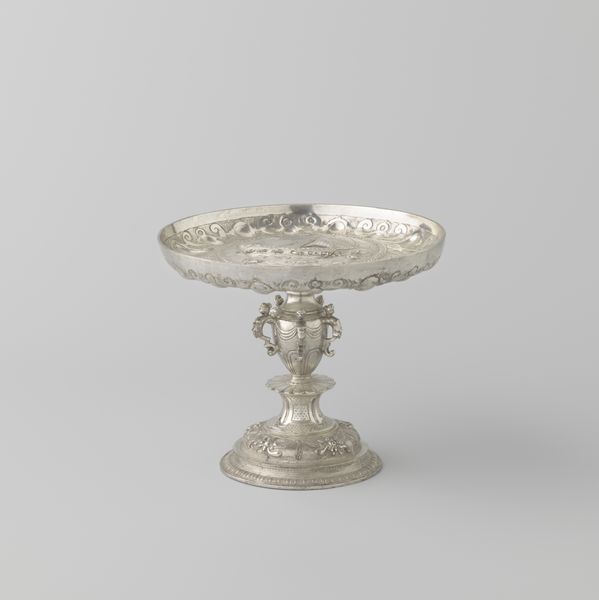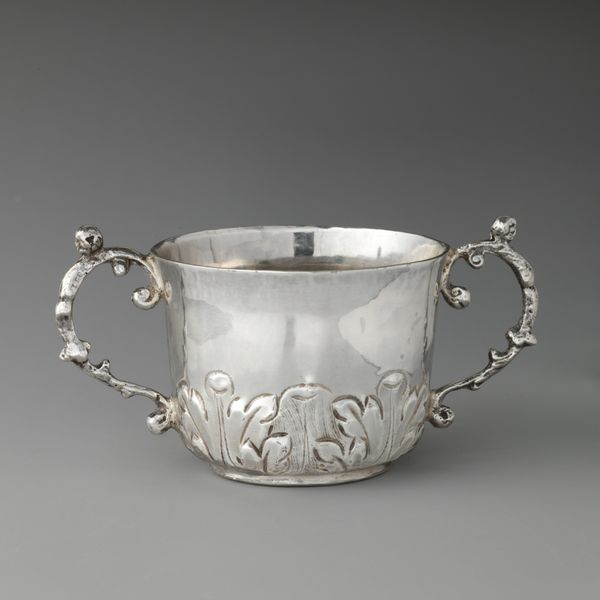
#
3d sculpting
#
3d model
#
wedding photograph
#
3d image
#
jewelry design
#
virtual 3d design
#
3d shape
#
3d digital graphic
#
metallic object render
#
3d modeling
#
united-states
Dimensions: 1 13/16 x 3 5/16 in. (4.6 x 8.4 cm); 4 oz. 15 dwt. (147.6 g)
Copyright: Public Domain
This silver salt cellar was made by Charles Le Roux, a silversmith active in the first half of the 18th century. The silver itself is remarkably soft and ductile. Notice how it has been formed into a bowl, supported by three stylized dolphins, and decorated with swags of chased flowers. Consider the making process: silver would have been mined, smelted, and refined, before being traded to an urban workshop like Le Roux’s in New York. Here, a master silversmith and his journeymen would have transformed it into a luxury commodity. The labor involved in this production is considerable, from the extraction of the raw material to the final polishing. This wasn't simply a functional object, it was a demonstration of wealth and status. The heavy weight of the silver speaks to its intrinsic value, while the refined details showcase the silversmith's skill. In the end, understanding how this object was made, and the social context in which it was used, is essential to appreciating its full significance. It really encourages us to reconsider traditional distinctions between fine art and craft.
Comments
No comments
Be the first to comment and join the conversation on the ultimate creative platform.
